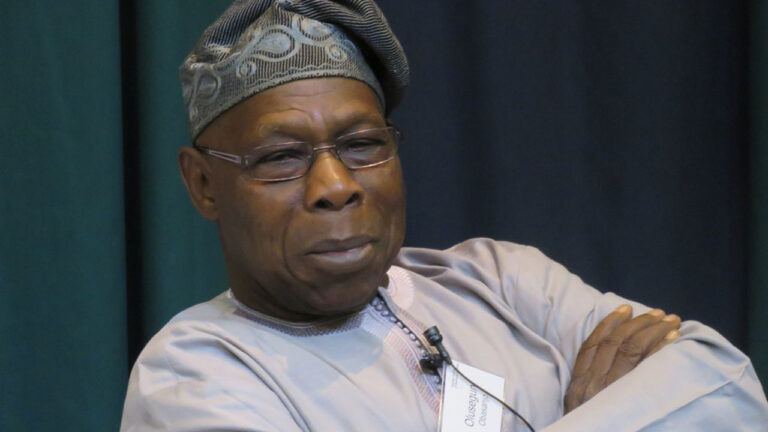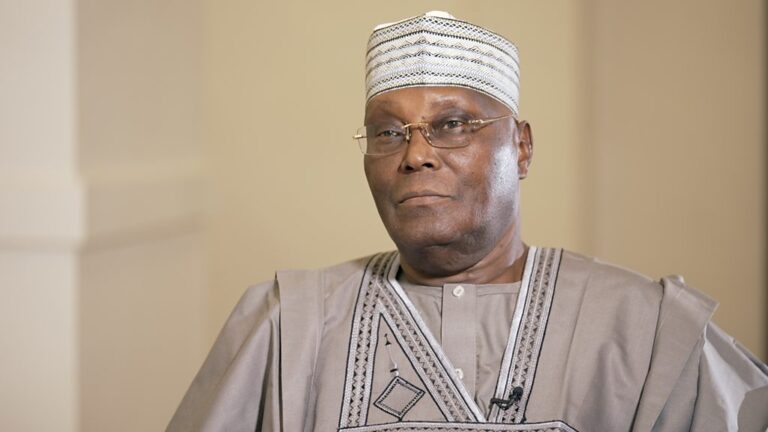Top 10 Most Influential Political Figures In Nigeria (2023)

Nigeria, a nation marked by its intricate tapestry of people, boasts equally intricate and ever-shifting politics. Amidst this complexity, a select group of politicians stand as perennial powerhouses. Their enduring presence yields substantial control over Nigeria's political landscape and the trajectory of its development. Their authority extends to shaping legislation, appointing key figures, and steering the nation's course, thus wielding pivotal influence over Nigeria's destiny.
Nevertheless, the supremacy of these political figures is not without conditions. They must navigate the competing interests of formidable entities such as the military, corporate giants, and traditional leadership. Moreover, Nigeria's political sphere remains prone to volatility, potentially reshaping the sway these politicians hold, dependent on the prevailing circumstances.
Despite these challenges, the preeminent politicians in Nigeria persist in steering the nation's course. Their enduring impact remains pivotal in shaping the realities of everyday Nigerians. Their decisions ripple through the lives of ordinary citizens, cementing their status as pivotal architects of the nation's path forward.
Top 10 Most Influential Political Figures in Nigeria (2023)
- Bola Ahmed Tinubu
- Peter Obi
- Mohammed Buhari
- Atiku Abubakar
- Rabiu Kwankwaso
- Nyesom Wike
- Femi Gbajabiamila
- Olusegun Obasanjo
- Yemi Osinbajo
- Bukola Saraki
1. Bola Ahmed Tinubu

a prominent Nigerian politician, wields significant influence within the nation's political landscape. Serving as the 16th and current president, he previously held the position of Lagos State governor from 1999 to 2007, along with a stint as a senator representing Lagos West during the Third Republic.
Born in Lagos State, Tinubu's educational journey began at St. John’s Primary School in Aroloya, Lagos, followed by studies at Children’s Home School in Ibadan. He pursued higher education in the United States, attending Richard J. Daley College in Chicago and later Chicago State University. In 1979, he earned a Bachelor of Science degree in Accounting.
READ ALSO » Top 10 Most Powerful Political Parties In The World 2023
Tinubu's reputation is complex, marked by controversy and allegations of corruption, as well as his role as a political power broker. Despite criticism, many recognize him as an astute politician who has achieved significant advancements for Lagos State.
With a mix of supporters and detractors, Bola Ahmed Tinubu remains a central figure in Nigerian politics, shaping the course of the nation's development through his intricate maneuvering and policy initiatives.
2. Peter Obi

Peter Obi, hailing from Onitsha, Anambra State, Nigeria, has risen as a prominent political figure within the nation. With a significant span as the governor of Anambra State from 2006 to 2014, he has cultivated a reputation for fiscal responsibility and governance excellence. A member of the Labour Party, Obi's influence extends beyond his gubernatorial tenure.
Graduating from the University of Nigeria, Nsukka, with a degree in philosophy, Obi's professional journey began in the realms of accounting and banking before he ventured into politics. Elected as the governor in 2006, he made strides by delivering a budget surplus and fostering a legacy as one of Nigeria's most prosperous governors.
Obi's trajectory took an intriguing turn as he emerged as the presidential candidate for the 2023 Nigerian general election. This momentous step underscores his standing as an influential and impactful politician. Despite his polarizing reputation, Obi remains a favorite among the country's youth, symbolizing hope and change in a landscape marred by corruption and political inertia.
In summation, Peter Obi's ascent from his educational and professional roots to the forefront of Nigerian politics showcases his dedication to reform and progress. His legacy, a mix of financial acumen and governance commitment, continues to shape the nation's political narrative.
3. Mohammed Buhari

Mohammed Buhari, the 14th President of Nigeria, holds a significant position in the country's political landscape. A retired major general from the Nigerian Army, he assumed power through a military coup d'état and served as the military head of state from December 31, 1983, to August 27, 1985. Born in Daura, Katsina State, Nigeria, Buhari's educational journey led him to Katsina College and the Nigerian Military School in Zaria. He eventually graduated from the Nigerian Defence Academy in 1964 with a Bachelor of Science degree in military science.
READ ALSO » Top 10 Most Influential Countries In Africa (2023)
Buhari's presidential legacy is marked by mixed reviews. Some view him as a champion of the people, while others perceive him as a corrupt and indifferent politician, allegedly contributing to the nation's regression. His handling of the Boko Haram insurgency and human rights concerns have drawn criticism during his tenure.
4.Atiku Abubakar

Atiku Abubakar, a notable Nigerian politician and businessman, has also wielded significant influence in the country's political sphere. Serving as Nigeria's vice president from 1999 to 2007 during Olusegun Obasanjo's presidency, Abubakar's role is noteworthy. He belongs to the People's Democratic Party (PDP) and assumed the position of presidential candidate for the 2023 Nigerian general election.
Born in Jada, a village then under British Cameroons administration, Abubakar's background is rooted in a Fulani trader and farmer father named Garba Abubakar and a mother named Aisha Kande. His early education encompassed primary school in Jada and secondary schooling in Yola. He pursued further studies at the School of Economics and Political Science in Kaduna, culminating in a diploma in public administration.
Abubakar's reputation is a subject of contention. While some accuse him of corruption and wielding undue power, others regard him as an astute politician who has effectively contributed to Adamawa State and Nigeria's progress. His role as vice president under Obasanjo's leadership and his 2023 presidential candidacy demonstrate his continued relevance and influence.
5. Rabiu Kwankwaso

is a prominent Nigerian politician with significant influence in the northern region of the country. He held the position of Kano State governor twice, first from 1999 to 2003 and later from 2011 to 2015. A member of the New Nigeria Peoples Party (NNPP), Kwankwaso was born in Kwankwaso, Kano State. He pursued his education at the School of Basic Studies, Kano, and the University of Maiduguri, earning a degree in Political Science. His early career involved lecturing at Bayero University, Kano, before he ventured into politics.
Kwankwaso's political journey commenced with his election to the Kano State House of Assembly in 1991, where he eventually became the Speaker between 1992 and 1993. In 1999, he secured the position of Kano State governor, subsequently earning re-election in 2011. Known for his people-centric policies, he spearheaded educational reforms that included the introduction of free primary education and the establishment of Kwankwasiyya Schools. His administration also focused on infrastructure development, constructing hospitals and roads in Kano State.
6. Nyesom Wike

On the other hand, Nyesom Wike is a notable Nigerian politician who served as the governor of Rivers State from 2015 to 2023. Affiliated with the People’s Democratic Party (PDP), he emerged as a formidable political figure in Nigeria. Born in Rumuepirikom, Rivers State, Wike graduated with a Bachelor of Laws degree from the University of Port Harcourt. He practiced law before transitioning into politics.
Wike's political career saw him elected to the Rivers State House of Assembly in 1999, where he assumed the role of chairman for the House Committee on Finance and Appropriation. Subsequently, he became the deputy governor of Rivers State in 2007 and held this position until 2015. In 2015, Wike clinched the governorship of Rivers State by defeating the incumbent governor, Rotimi Amaechi, a member of the All Progressives Congress (APC). He secured re-election in 2019.
READ ALSO » Richest Politicians In Nigeria 2023: Top 10 Wealthiest
While in office, Wike garnered both admiration and criticism. He faced allegations of corruption and an authoritarian style of leadership. Nonetheless, he is widely recognized for his strong and effective leadership that facilitated significant advancements in the development of Rivers State.
7. Femi Gbajabiamila

Femi Gbajabiamila, a skilled politician and lawyer, currently holds the role of Chief of Staff to the President of Nigeria. Born in Lagos State, Nigeria, he pursued his education at the University of Lagos, where he earned a Bachelor of Arts degree in English. Before venturing into politics, he gained experience as a journalist and broadcaster. Renowned for his advocacy of good governance and transparency, Gbajabiamila has actively championed reforms within the House of Representatives, striving to enhance its efficiency and accountability. He stands as a staunch advocate for the rule of law, openly denouncing corruption and impunity. His complex persona has garnered both admiration and criticism, leaving his legacy a matter of ongoing debate.
8. Olusegun Obasanjo

Olusegun Obasanjo, a highly respected elder statesman, boasts a notable career as a retired Nigerian military general and politician. His role as the first military head of state spanned from February 13, 1976, to October 1, 1979, followed by a presidential tenure from May 29, 1999, to May 29, 2007. Born in the southwest Nigerian village of Ibogun-Olaogun, Obasanjo's exact date of birth has stirred some uncertainty, eventually settled around March 5, 1937. He earned his stripes during the Nigerian Civil War, ascending to the rank of brigadier general in 1975. Following the assassination of Murtala Mohammed, Obasanjo took the reins as head of state in February 1976. During his tenure, he initiated several reforms, including the transition to civilian rule, along with the revitalization of Nigeria's post-war economy. Ceding power in 1979, he made way for Shehu Shagari. Returning to the political forefront in 1999, Obasanjo assumed the presidency, serving two terms marked by economic reform and the introduction of the Naira currency.
9. Yemi Osinbajo

Yemi Osinbajo, a Nigerian politician, held the position of vice president from 2015 to 2023, representing the All Progressives Congress (APC). His academic journey took him to the University of Lagos, where he graduated with a Bachelor of Arts degree in Law. His legal background propelled him into a political career after practicing law. In 1999, he secured a seat in the Lagos State House of Assembly, later becoming commissioner for justice and attorney general of Lagos State from 2003 to 2007. Elected as vice president in 2015, Osinbajo played a pivotal role in significant initiatives such as the National Social Investment Programme and the Economic Recovery and Growth Plan. With his potential to become a future president, he occupies a position of influence in Nigerian politics.
10. Bukola Saraki

Bukola Saraki, another astute politician, held the presidency of the Nigerian Senate from 2015 to 2019, representing the People’s Democratic Party (PDP). Born in Ilorin, Kwara State, Nigeria, Saraki's educational journey led him to Barewa College, Zaria, and the University of Ilorin, where he earned a Bachelor of Medicine and Bachelor of Surgery (MBBS) degree. Transitioning from a medical career to politics, he embarked on a journey that saw him elected to the Kwara State House of Assembly in 1992. His tenure as the speaker from 1992 to 1993 marked his initial foray into leadership. Subsequently, he served two terms as governor from 1999 to 2007. Widely regarded as a potential future Nigerian president, Saraki's leadership capabilities have positioned him as a force of change in the nation.
These Nigerian political figures each hold a distinctive place within the country's political landscape. Their careers span various roles, from legislative leadership to executive positions. Their actions, accomplishments, and potential for future roles contribute to the ongoing narrative of Nigeria's political evolution.
